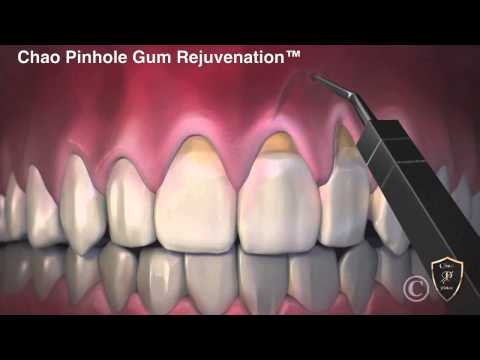How To Treat Black Spot On Gums? Fast Relief Guide

The appearance of black spots on gums can be a source of concern and discomfort for many individuals. These spots can be caused by a variety of factors, including poor oral hygiene, smoking, and certain medical conditions. Understanding the underlying cause of these black spots is crucial in determining the most effective treatment approach. In this comprehensive guide, we will delve into the possible causes, symptoms, and treatment options for black spots on gums, providing you with a roadmap to achieving fast relief and maintaining good oral health.
Causes of Black Spots on Gums
Before we explore the treatment options, it’s essential to understand the potential causes of black spots on gums. These can include:
- Poor Oral Hygiene: Inadequate brushing and flossing can lead to the accumulation of plaque and tartar, which may cause black spots.
- Smoking and Tobacco Use: Tobacco products can stain the gums, leading to the appearance of black spots.
- Medications: Certain medications can cause changes in gum color as a side effect.
- Infections: Bacterial, viral, or fungal infections can lead to discoloration of the gums.
- Hormonal Changes: Fluctuations in hormone levels can affect gum health, potentially leading to black spots.
- Nutritional Deficiencies: Lack of essential vitamins and minerals, such as vitamin C, can impact gum health.
Symptoms
While the primary concern might be the aesthetic appearance of black spots, it’s crucial to be aware of other symptoms that may indicate a more serious issue. These can include:
- Pain or Discomfort: Sensitive gums, especially when eating or drinking.
- Bleeding: Gums that bleed easily, even with gentle brushing.
- Swelling: Red, swollen gums that are tender to the touch.
- Bad Breath: Persistent bad breath that does not improve with regular brushing and flossing.
- Loose Teeth: Teeth that feel loose or are moving.
Treatment Options
Treating black spots on gums often involves a combination of professional dental care and good oral hygiene practices. Here are some steps you can take:
Professional Dental Care
- Dental Cleaning: A professional cleaning can help remove plaque and tartar that may be causing the black spots.
- Deep Cleaning: If the black spots are due to gum disease, a deep cleaning procedure (scaling and root planing) may be necessary.
- Medication: For cases caused by infections, your dentist may prescribe antibiotics or antifungal medications.
Home Care
- Improve Oral Hygiene: Brush your teeth at least twice a day and floss once a day to remove plaque and food particles.
- Use a Desensitizing Toothpaste: If you experience sensitivity, using a desensitizing toothpaste can help.
- Quit Smoking: If you smoke, quitting can significantly improve your oral health and reduce the appearance of black spots.
- Dietary Changes: Ensure you’re getting a balanced diet rich in vitamins and minerals essential for gum health.
Natural Remedies
In addition to professional dental care and good oral hygiene, some natural remedies may help alleviate the symptoms and appearance of black spots on gums. Keep in mind that these should not replace professional advice but can be used as complementary treatments:
- Salt Water Rinse: Rinsing your mouth with warm salt water several times a day can help reduce swelling and kill bacteria.
- Hydrogen Peroxide: A diluted hydrogen peroxide solution can help kill bacteria and reduce gum discoloration.
- Aloe Vera: Applying aloe vera gel to the affected area may help soothe the gums and reduce inflammation.
- Tea Tree Oil: Due to its antibacterial properties, tea tree oil can be used to help combat infections when used in a mouthwash or applied topically with a carrier oil.
Prevention
Preventing black spots on gums involves maintaining good oral hygiene and regular dental check-ups. By:
- Brushing and flossing regularly
- Visiting your dentist for regular cleanings and check-ups
- Avoiding tobacco products
- Eating a balanced diet
- Staying hydrated
You can significantly reduce the risk of developing black spots on your gums and maintain a healthy, vibrant smile.
FAQ Section
What are the first signs of gum disease that could lead to black spots on gums?
+The first signs often include red, swollen, and bleeding gums, along with bad breath. If these symptoms persist, it's crucial to consult a dentist to prevent further complications.
Can black spots on gums be a sign of a serious health issue?
+Yes, in some cases, black spots on gums can be indicative of underlying health issues such as diabetes, heart disease, or respiratory disease, among others. It's essential to get a professional diagnosis.
How often should I visit the dentist if I have black spots on my gums?
+It's recommended to visit your dentist every 3-6 months for check-ups and cleanings if you have noticed black spots on your gums. Regular monitoring can help in early detection and treatment of any underlying conditions.
In conclusion, treating black spots on gums requires a comprehensive approach that includes professional dental care, good oral hygiene practices, and in some cases, lifestyle changes. By understanding the causes, recognizing the symptoms, and acting promptly, you can not only achieve fast relief from the discomfort and aesthetic concerns but also work towards maintaining optimal oral health and a bright, healthy smile.

